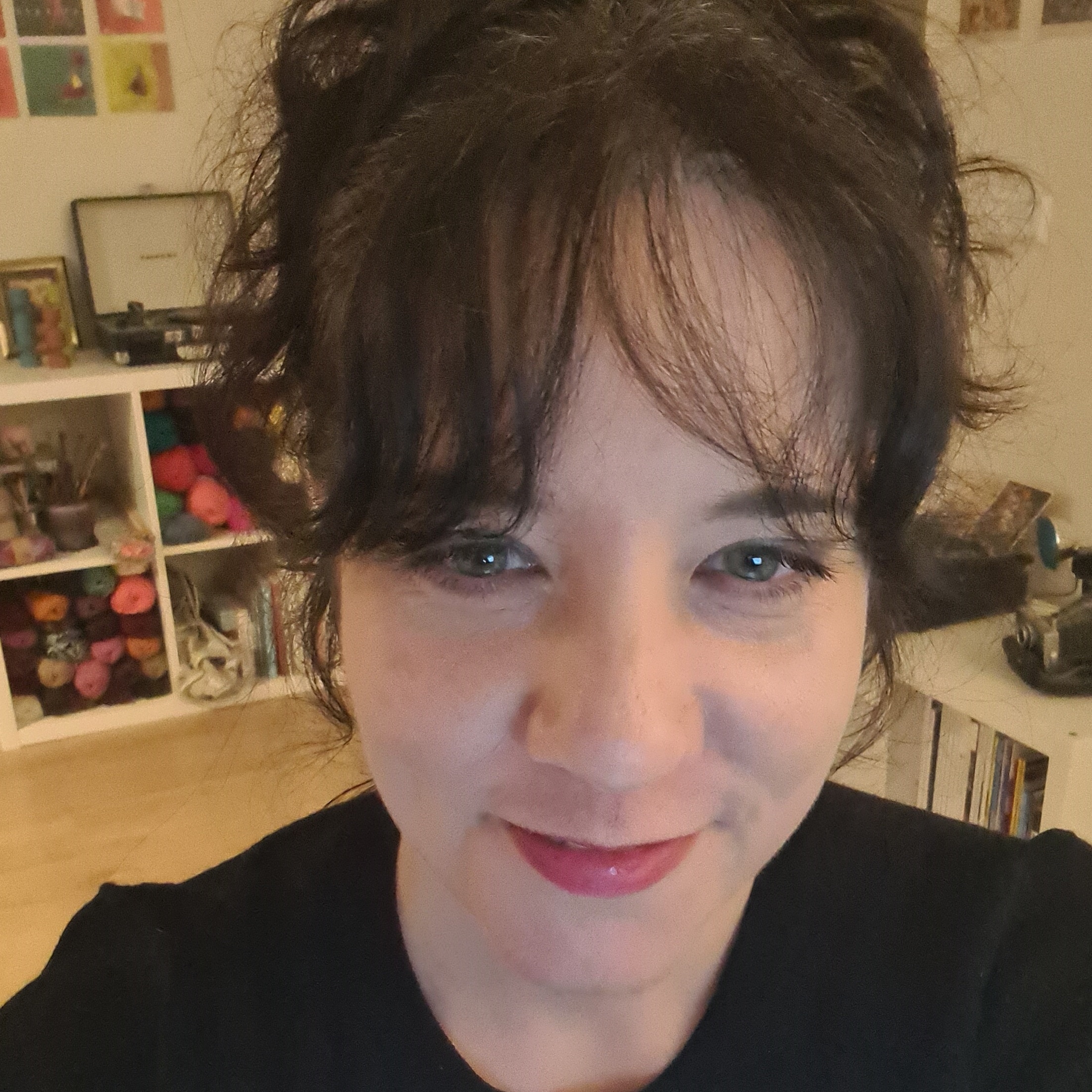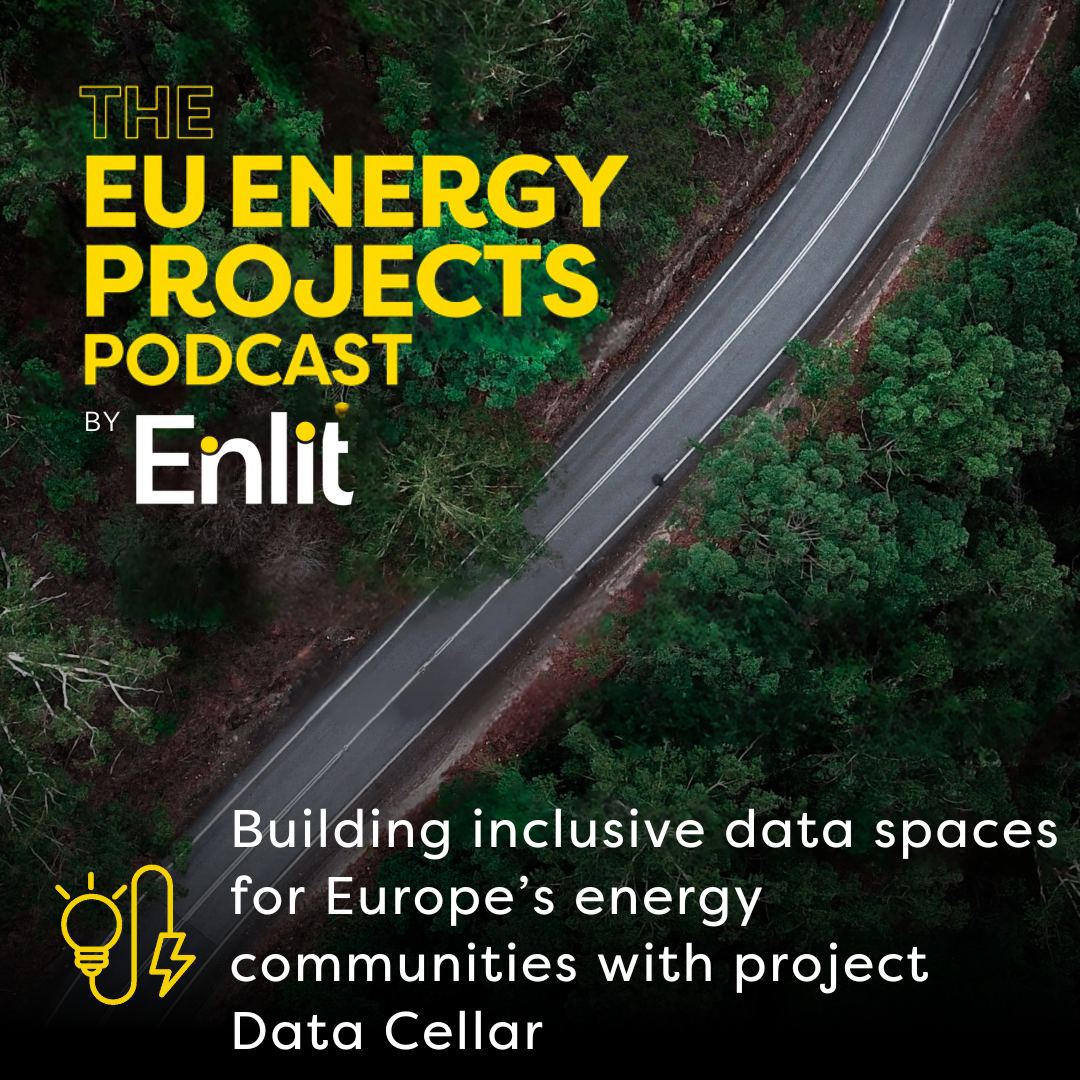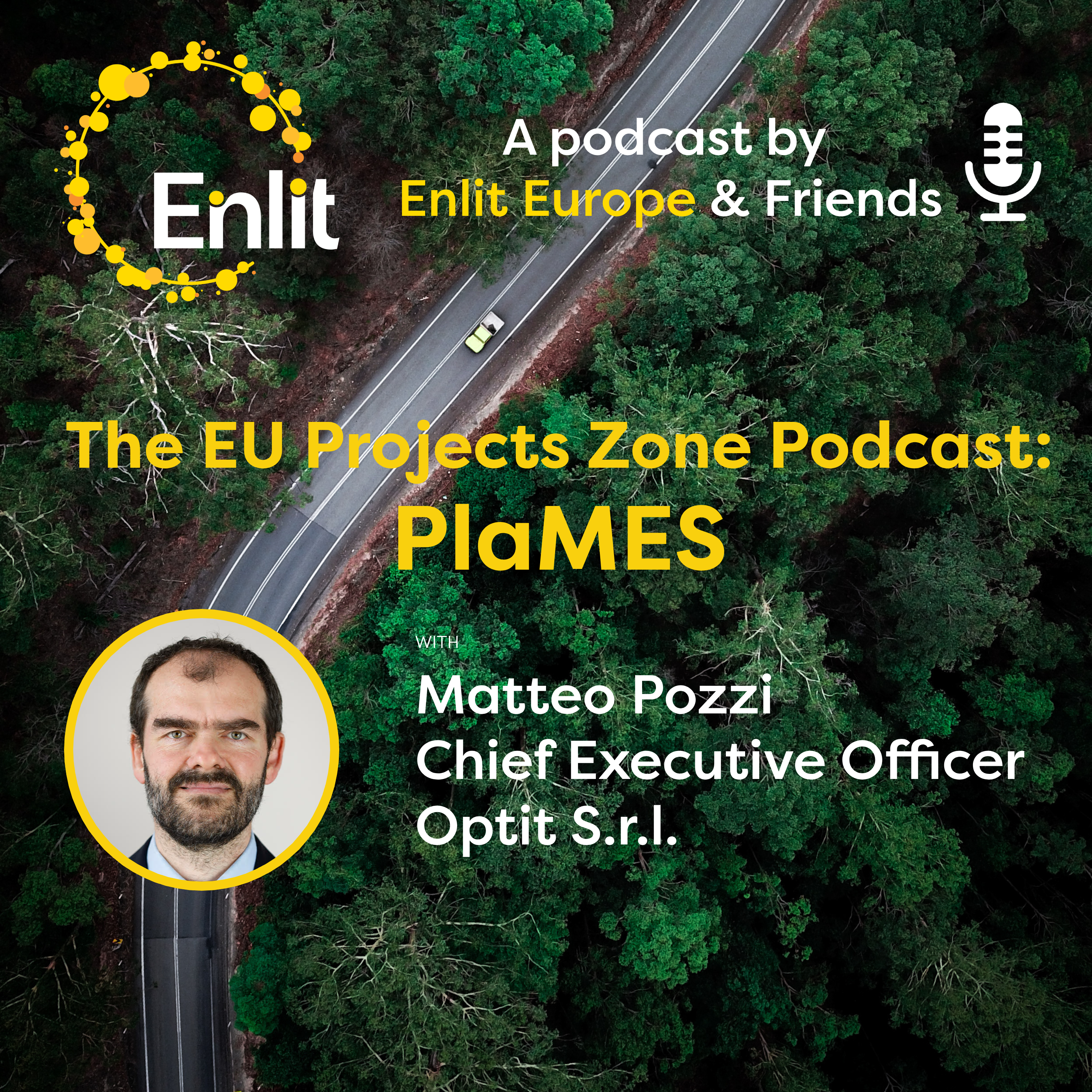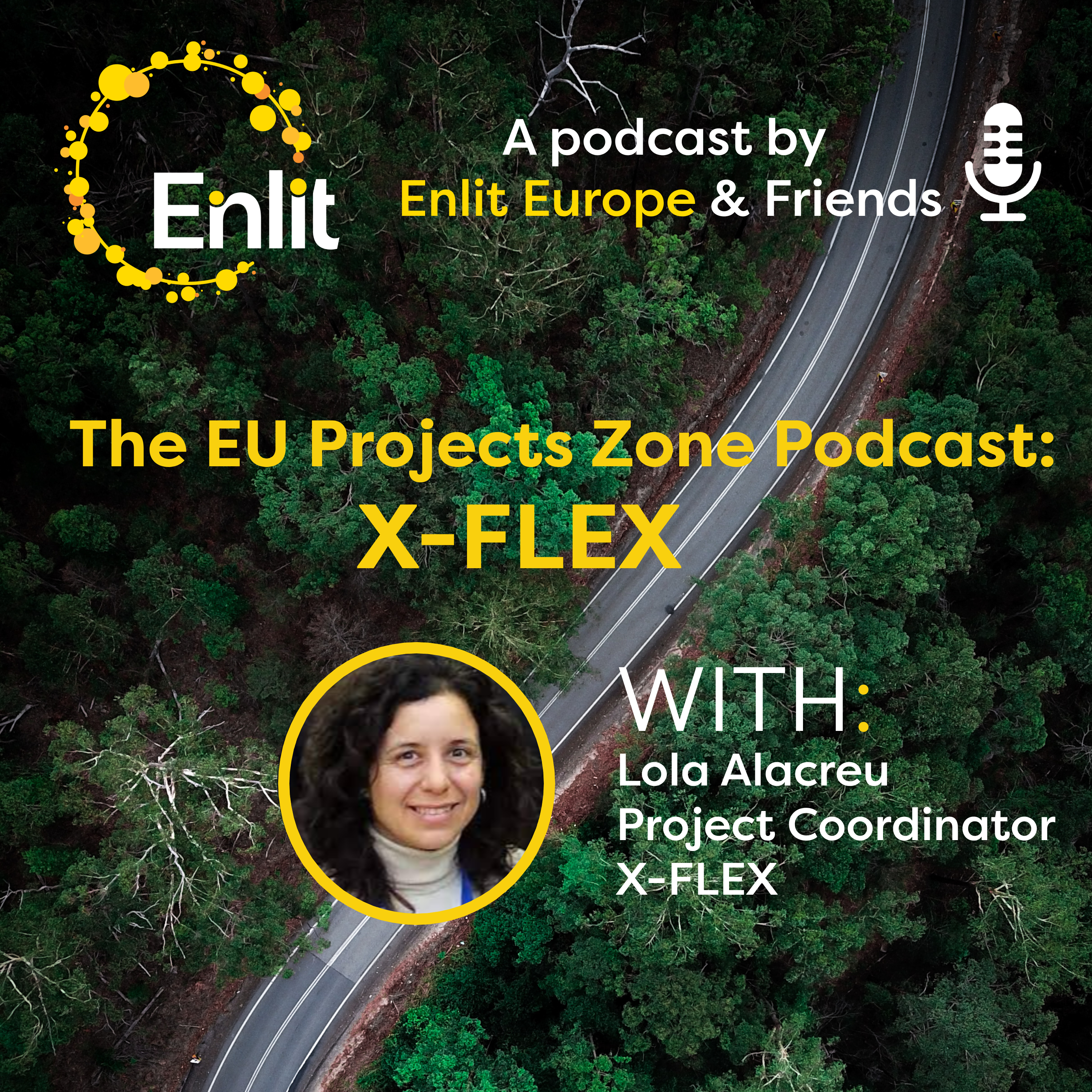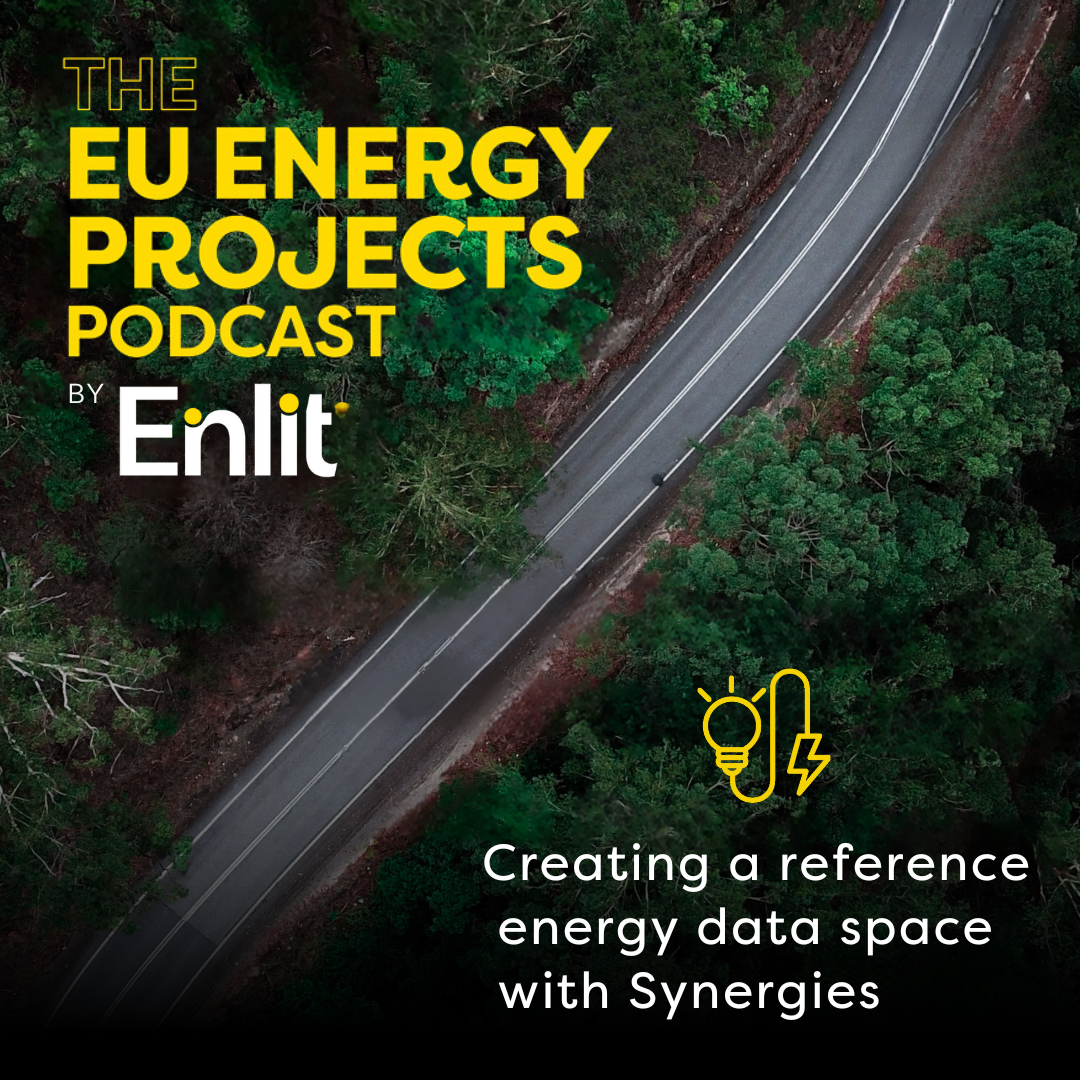Episode Transcript
[00:00:10] Speaker A: Welcome to the EU Energy Projects Podcast, a podcast series from Enlida and France focusing on the clean energy transition for the European Union and the EU Commission funded energy projects that will help us achieve it. My name is Aretid Daradimu, I. I am the editor of the EU Energy Projects podcast and your host project, Data Seller is a collaborative initiative promoting energy data sharing through a decentralized platform. In this episode I'm joined by Martina Galluccio, project lead of Data Seller and together we shall highlight the project's goals, tools and community benefits.
[00:00:54] Speaker B: Hello Martina and thank you very much for being here with us today. Could you briefly summarize for us the main goals and outcomes of Data Seller?
[00:01:04] Speaker C: Hi. Hello Hareti. It's a pleasure to be here.
Data Seller is a project which main focus is the development of modular public energy data space that should aim to foster the better management the creation of local energy community.
So we can say that the main two pillars of Data Cellular are energy data space and local energy communities.
The aim is to create a data sharing platform to support the local energy community.
We have actually nine validation cases within the project that are going to test and evaluate the platform in order for us to fine tune and support them as much as we can. So it will be a co creation approach.
And within this platform, besides the data space, we are also aiming to build some service upon the data they are going to share like AI model, decision support system and there will be for sure a marketplace both for data and services.
And for sure the last goal of this project would be to enhance data space interoperability at European level. So we can say that we have goal on different aspect and they mainly depends on the target. So there will be a more technical one which is the one of reaching interoperability in energy data space. But we also have to keep in mind the reason we are doing this. We are doing this for local energy communities so also providing them better service and support them in the creation and also in growing up with their energy community.
[00:02:45] Speaker B: Speaking of this, can you also briefly walk us through the technical architecture or any key innovations delivered by Data Seller?
[00:02:53] Speaker C: Yeah, we started building our architecture based on the minimum viable component that we have to consider to be part of a data space. One of the main points that we have to keep in mind is the interoperability aspect with other data.
This is one of the main part of our architecture. So we will have some specific components that are related to data space such as the connector, the federated catalog, but also all the aspects related to the verifiable credential and onboarding and logging of the user in the platform. Along with this aspect we are also trying to create a service and support for end user and in this sense we also are developing a common data environment for the data ingestion that should be able to support the onboarding of different type of data independently on the on the overday format. This is an aspect that we should take into account because we are mainly working with end users that are maybe not experts in the digital part, so they need support for translating their data in order to be able for us to share this data and to make this data publicly available on the federated catalog.
Another aspect that we are developing within Data Seller is the decision support system with several functionalities and the idea is to improve each functionality with the data that there will be within the data space. Every service will be based on the data that are made available publicly available within the platform and for the marketplace part. Finally, the marketplace is powered by blockchain and tokenization aspect, so we will have both aspects of security with that blockchain approach, but we are also keeping in mind tokenization approach in order to try to involve user in being a part of Data Seller.
[00:05:09] Speaker B: Having spoken to many projects throughout the years with this podcast and with the EU Project Zone at and lied, I know that there are issues and challenges, big challenges that the projects are facing now. Data Seller, since it is ending now and here I would like also to add that Data Seller will have its final event during and reach Europe at the EU project zone from the 18th 20th of November. I think that you are in a unique position to tell us what the biggest challenges the consortium face, what are they and how you address them.
[00:05:48] Speaker C: I can say that we face different challenges at different levels. From a social point of view, the main challenge is related to the heterogeneity of local energy community.
So we are working with the different type of energy community coming from different countries, so different legislation, different type, different dimension. We have both rural or industrial for example energy community and also some of them are cooperative, some are managed by dso. We have one of the main of the main challenge was try to address in the proper way each of them, trying to understand the different need coming from each of them. And I would say that the work we did in Data, the strong work we did in Data Seller started since the beginning of the project and and was as I said trying to prepare something through a participatory design approach.
So everything we are doing should be helpful for them and should be understandable for them. That's why I also was talking about providing service to support them in onboarding data. Because it's not just creating a data space with a lot of services, nice services, but we also have to consider the point of view of a non expert that needs support in every step.
And that's I would say the first point which also linked to the aspect of engagement because the simplest way we created the easier to engage external stakeholders. We are now also preparing different workshop and trainings and training courses target to different type of stakeholder and to different aspect of the platform. So from the more generic level point of view. So basically what is a data space which is something that is not so clear for everyone to some very specific aspect like how should I prepare my data for onboarding or what are the steps for me to log into the platform to also specific training for the aspect related to the AI model they can develop by their own within the block. The second aspect is related to the data privacy analytics. Because we are a project that is mainly working with data. I always say we are not preparing infrastructure, we are working only with data. So it's very important to manage properly. We are through GDPR compliant rule and anonymization approach everything we receive from the end user. And that's I would say the second challenge that is really important for data seller. Finally, just last but not least, the aspect related to the interoperability of data space.
This is a topic at the UA level and we are working together with other sister projects to try to make our data space not a standalone but able to be interoperable at different level also with other business.
[00:09:18] Speaker B: Speaking of data spaces and data, what would you say is exciting you the most about the potential of data spaces in Europe?
[00:09:29] Speaker C: I would say that the most interesting aspect of data space are their decentralized and I would say also democratic energy system.
Because through data space everyone can keep the sovereignty and the control over its own data. But at the same time is able to share and look for other interesting and useful data that maybe are not used by or are not of not interest for the owner of this data. So I think that this data exchange is quite challenging but quite interesting and of great value for the future.
[00:10:08] Speaker B: Speaking about data and data spaces, I would like to ask you how important are they in accelerating Europe's energy transition? Because normally we talk about renewable projects, et cetera, but data also plays a very important role.
[00:10:24] Speaker C: Yeah, first of all they can foster innovation, feel like AI or also improve decision support system tools.
They can also allow to Have a new role in the market because there are some companies that can sell their data, even if this is some, because maybe this is something of interest for rather end user. And finally, also the aspect related to cross border collaboration is something that is quite relevant and new and for sure in accelerating the energy transition.
[00:11:00] Speaker B: From your experience, how does the European Commission support cross border data sharing while also ensuring data privacy and security?
[00:11:10] Speaker C: I would say that everything started with the European Data Strategy, with providing and promoting data sovereignty and fair use. Because we can see that the first definition of data space is based on this aspect.
Then there is also all the aspects related to the regulatory framework that I mentioned before, so like the GDPR or the Data Governance Act. And this is something that we can consider a guideline or a point to start on which building all the technical part related to data space. And finally the part related to funding this initiative and promoting and sustaining also for the future.
This initiative is something of help for continuing with development of data space.
[00:12:01] Speaker B: And what is the role of the energy communities? What role do they play in shaping Europe's sustainable digital future?
[00:12:09] Speaker C: Energy community enable first of all our bottom up innovation of the management of the energy, which is something that is becoming more relevant within the European scenario. Their role is central, as helpful to better understand this transition, they also can stimulate, for example, the aspect related to local investment. In this aspect also the part related to growing locally is something that local energy community are central.
And finally they can also be considered like in datastellar, the 10 tested for this kind of new technologies and approach.
[00:12:52] Speaker B: What were some of the most valuable lessons learned during the implementation of Data Seller?
[00:13:00] Speaker C: I would say that the main valuable lesson learned are related to user engagement. So we need to be sure that everyone is engaged and understand its own role to be able to tailor the technical development.
And then the part related to technical innovation linked to regulatory foresight. So these two aspects, three aspects I would say should go along to create a strong data space.
[00:13:35] Speaker B: If I understand correctly, there were also some demos, some pilots in Data Seller.
Could you share some insights from them, some lessons learned there, or some outcomes that surprised you and the team?
[00:13:48] Speaker C: In general, I think that the demo we have in the Dosala are nine different demos that are basically nine different validation cases. And what we learned for them is that if we are able to transmit properly the message, they are really involved and willing to support in every action we did within the project.
This helps not only for the life of the project, but this helps especially tool developers to understand and to improve the service we can Offer them. I would say that especially non experts were the one that were more involved and more interested in understanding and providing their feedback along the whole duration of the project.
[00:14:38] Speaker B: How did data sharing impact the community's decision making or efficiency? Like how did, let's say the platform or the work that you did in data seller helped the energy communities that participated in the pilots, for example?
[00:14:53] Speaker C: We are mainly working with their data to develop target services.
We are, let's say, in a win win situation in which energy community will be supported because all the services we are providing are tailored using their own data or data coming from similar local energy communities. This is something of great help for them and at the same time is something of help for tool developer in order to be sure that they can provide something of interest for the end user. I would say that this is the first aspect that impacted the community decision making.
That's the main point.
[00:15:34] Speaker B: And what feedback did you receive from local stakeholders or even citizens, individuals?
[00:15:40] Speaker C: I think that we had some positive and some need to be improved feedback for the positive one.
I think that once the local stakeholders understand the architecture and our data space work and they are also reassured that their data are treated properly, they are quite interesting and see the advantages of being part of a data space.
The point is that sometimes it's really important to highlight and try to understand if they really understood how a data space work.
Because at the moment the concept is in a continuous.
It's continuously changing and it's not always clear, especially from a governance point of view, how it will go.
[00:16:40] Speaker B: What advice would you give to new projects that are entering this collaborative landscape?
[00:16:45] Speaker C: I can reconnect to the previous question and I would say first of all, prioritize explainability.
We are also working in the cellar to provide, for example, AI explainability modules in order to be sure that what we provide is fully understandable for the end user.
And also keep in mind privacy and ethics because sometimes this is something taken for grant, but from the other side that's not so clear. So I would say to focus on this aspect as well as for the governance part.
[00:17:22] Speaker B: Martina, you mentioned ethics, that this is an important point that stakeholders need to take into consideration and future projects, future consortia. Can you elaborate a little bit on that, please?
[00:17:35] Speaker C: Thank you for the question. I agree that that's one of the key points that we should take into account when talking about data ethics can refer to different aspects. But just to keep it short, I would say that for example, in the case of data seller, we try to be very clear with local energy community on how their data will be used and handled within Data Seller and we try to provide them with all the tool to make informed decision on what they are sharing, for how long they are sharing, to which one they are sharing. So it's also possible to share data but to flag well I'm not going technical but to decide the target and to avoid sharing data with other companies that are in competition with the specific.
[00:18:30] Speaker B: Makes total sense. Thank you for this Martina and I would like for my final question to go back to the final event that the data seller will have at Enlit Europe at the EU Project Zone in November in Bilbao. Can you please tell us a little bit what the agenda holds and why should our audience come and follow the final event of Data Seller?
[00:18:53] Speaker C: I think that the final event would be a great opportunity for everyone to know a bit more about our experience in creating an energy data space and in working with energy communities. There will be different sessions and panel discussion that will be and more related to technical aspects so the service that we can deliver thanks to the data we had from our pilot, but there will be also more non technical session in which there will be energy community that will explain their experience and how was their role and their experience within the project. So we will have both aspects and lessons learned from both of them. And I think that this is something of a of high interest also for the future to be sure that what we are providing is something that can have a follow up in the future. Finally there will be also panel discussion with the other energy data space because as I said another important aspect is the interoperability part because the final aim is to build a common European energy data space. That's why we also decided to include a panel discussion with the other sister project to be sure that we can continue the work we did and we are doing within this project to create a more global common European energy dose.
[00:20:23] Speaker B: Sounds very interesting Martina. Thank you very much. I for one will surely make sure to follow these sessions. Thank you so much for being part of the EU Energy Projects podcast.
[00:20:36] Speaker C: Thank you. It was a pleasure to be here. I hope everything was of interest for the listener.
[00:20:43] Speaker B: I'm sure it was. Thank you.
[00:20:47] Speaker A: You've been listening to the EU Energy Projects Podcast, a podcast brought to you by Enlit and friends. You can find us on Spotify, Apple and the Enlit World website.
Just hit subscribe and you can access our other episode episodes too. I'm Aretit Daradimo. Thank you for joining us.
